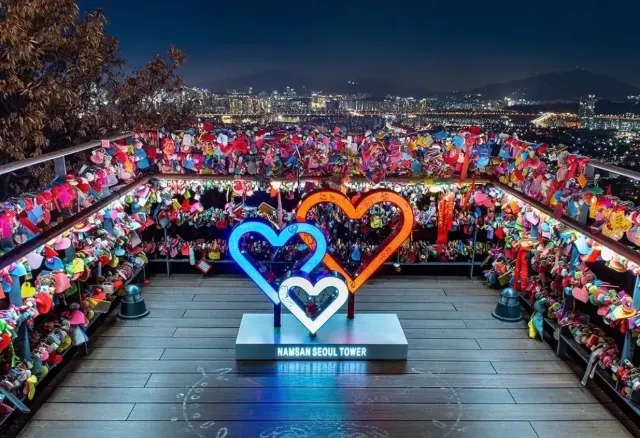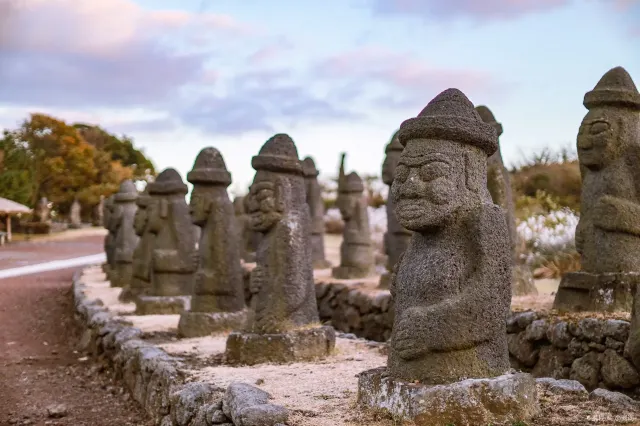South Korea public holidays in the Year of the Rabbit 2025
Catalogue
- South Korea public holidays calendar 2025
- New Year’s Day
- January 1 (Wednesday)
- Seollal
- January 21-24 (Saturday to Tuesday)
- March 1st Movement Day
- March 1 (Wednesday)
- Children’s Day
- May 5 (Friday)
- Buddha’s Birthday
- May 27 (Saturday)
- Memorial Day
- June 6 (Tuesday)
- Liberation Day
- August 15 (Tuesday)
- Chuseok
- September 28-30 (Thursday to Saturday)
- National Foundation Day
- October 3 (Tuesday)
- Hangeul Day
- October 9 (Monday)
- Christmas Day
- December 25 (Thursday)
- Top 10 Best Things to Do in Seoul - 2025
- 1. N Seoul Tower
- 2. Myeong-dong
- 3. Gyeongbokgung Palace
- 4. Bukchon Hanok Village
- 5. Myeongdong NANTA Theatre
- 6. Ewha Womans University
- 7. Cheonggyecheon, Seoul
- 8. Namsan Mountain Park
- 9. The Painters
- 10. Blue House
Show More
With beautiful mountains and oceans, colorful cities and nightscapes, dynamic culture and delicious K-food, South Korea is one of the best destinations for global travelers. As the Year of the Rabbit approaches, Trip.com has put together a handy quick-reference long weekend guide for where you should be taking annual leave to maximize the time you have off and take more of those ultra-long weekends!
😉Read more:
| Date | Day | Public holiday |
| January 1 | Wednesday | New Year's Day |
| January 21-24 | Saturday to Tuesday | Seollal |
| March 1 | Wednesday | March 1st Movement Day |
| May 5 | Friday | Children's Day |
| May 27 | Saturday | Buddha's Birthday |
| June 6 | Tuesday | Memorial Day |
| August 15 | Tuesday | Liberation Day |
| September 28-30 | Thursday to Saturday | Chuseok |
| October 3 | Tuesday | National Foundation Day |
| October 9 | Monday | Hangeul Day |
| December 25 | Thursday | Christmas Day |
South Korea observes New Year’s Day on the Gregorian Calendar along with much of the rest of the world. New Year’s Eve on December 31 and New Year’s Day on January 1 are celebrated in many of the same ways as in other countries.
In general, this includes huge fireworks displays in Seoul and other cities, feasting and family togetherness, wearing new clothes, cleaning the house, setting New Year’s resolutions, and wishing yourself and others good luck.
In South Korea, one of the most important traditional public holidays is Lunar New Year. It is known as Seollal in Korean. This special holiday commemorates the first day of the Korean Lunar Calendar.
In 2025, the holiday falls in January 21, and it takes place in the span of several days. It is marked by the gathering of family members, performing Korean rituals, eating traditional foods, playing folk games, and other traditional activities.

Also known as Independence Movement Day, the March 1st Movement Day is a public holiday in South Korea. The day commemorates a nation-wide independence movement which took place in 1919 in protest against colonization by Japan.
Many Koreans visit historic sites like Seodamun Prison History Hall or Independence Hall of Korea on March 1st Movement Day. It is a day to fly the Korean flag, learn about Korean history, and take pride in being Korean.
Children’s Day is a national public holiday in South Korea that is celebrated every year on 5 May, meaning that salaried workers get a day off work, and children get a day off school.
On this day, South Korea celebrates its most-loved inhabitants — its children. And it’s also an opportunity for parents to take a break from their busy lives and to spend quality time with their children.

Specifically, Buddha's Birthday in Korea falls on the 8th day of the 4th month of the Lunar Calendar. It’s one of the most important religious events in the Lunar calendar and also a public holiday in South Korea.
Most of the events for Buddha’s birthday in South Korea happen in the week running up to Buddha’s birthday, rather than on the day itself.
Memorial Day is a public holiday in South Korea and it falls on June 6 in 2025. This holiday focuses largely on those who fought in or died in the Korean War, but it is also a time to honor any South Koreans who served in any wars in support of their country’s best interests.
Every year on this day, officials and citizens across the country will pray and lay flowers at the graves of the war dead. It is common practice to display the flag of South Korea on the front doors of homes to commemorate the civilians and soldiers who died in war.

South Korea celebrates Liberation Day annually on August 15 to commemorate the victory of the Allies over Japan at the end of World War II in 1945. Liberation Day is the only holiday that both South Korea and North Korea have in common.
The Liberation Day is also known as ‘Gwangbokjeol’, meaning to ‘bringing back the light’. This holiday is celebrated with festivities, ceremonies, and parades nationwide.
Chuseok means ‘Autumn Eve’ in Korean and is a three-day public holiday and a harvest festival. It’s a time when families gather together to give thanks to their ancestors for an abundant autumn harvest.
Sometimes, also called the ‘Korean Thanksgiving’, Chuseok is celebrated with good food, wine, and family gatherings. It typically falls on September of October, according to the lunar calendar.
National Foundation Day is a ‘red day’ or public holiday on the South Korean calendar. A ‘red day’ means that salaried employees have a paid day off for National Foundation Day, a Korean public holiday observed on October 3 every year.
The main event of National Foundation Day is a special ceremony held at Tangun’s mausoleum. In general, it is a patriotic holiday and a welcome day off for Korean workers.
Every October 9 is Hangeul Day in South Korea, to commemorate the invention of the Korean alphabet in the year 1443. Hangul Day is a public holiday set aside to celebrate the Korean alphabet, known as Hangul (or ‘Hangeul’).
Christmas has been adopted by many Asian cultures in recent decades, but South Korea is one of the few Asian nations where it is an actual public holiday.
On Christmas Day, many Korean churches will be lit up with Christmas lights and may have a neon cross on top of the building. People will attend services on Christmas Day, and the Christmas story and the Gospel will be presented.
Trending Travelogues
Popular Travel Types
Popular Attractions
Popular Ranked Lists
Popular Destinations
Recommended Attractions at Popular Destinations









Site Operator: Trip.com Travel Singapore Pte. Ltd.




